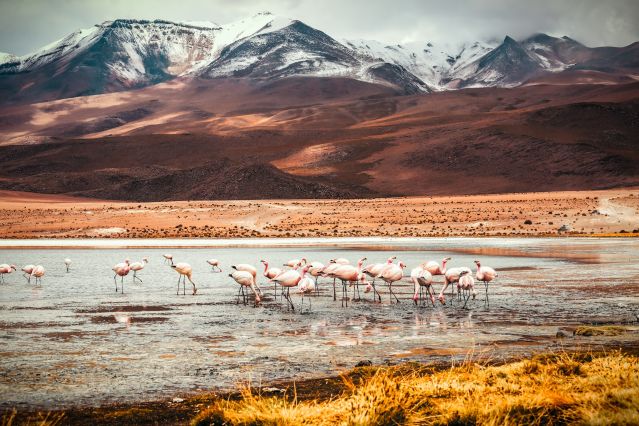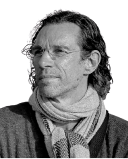Neuroscience
Emotions and Consciousness Woven from the Self
When our self is broken off from natural life, mental health is sabotaged.
Posted March 30, 2023 Reviewed by Hara Estroff Marano
Key points
- No self, no emotions: The self plays a grounding role in the creation of emotions.
- No self, no consciousness: The self enriches the mind with feelings and consciousness.
- No life, no self: When the self is disconnected from its natural intelligence, life regulation and emotion regulation become deeply sabotaged.
Emotions Born from the Self
In The Deep History of Ourselves, neuroscientist Joseph LeDoux, from the Center for Neural Science at New York University, produces a fundamental conclusion: “No self, no emotion.”(2019, p 369)
This simple conclusion deeply touches the heart of our psychology.

The past century has been marked by a fundamental debate among emotion researchers about the nature of emotions (Fox et al, 2018). One dominant theoretical approach held that an emotion arises in an obligatory way in response to a triggering stimulus: the basic emotion approach. The other perspective proposed that an emotion arises after an evaluation of the meaning of the stimuli: the appraisal theories (Barrett, p 33, 2018). Together they epresent the classical view of emotion, which is currently in dialogue with the theory of constructed emotion (Fox et al, p 39, 2018).
Understanding the nature of emotion is by no means a finished project. Understanding how emotional states emerge and give rise to feelings and awareness is crucial to gaining full insight into the nature of emotion. Introducing the self as absolutely essential for an emotion allows us to add consciousness to the debate.
With Every Breath Our Self Arises
In looking at the brain, it is impossible to separate cognition from emotion. Which circuits are involved in emotion, which in cognition? It is not at all clear where the emotion happens. The brain is a complex, integrated organ, fundamentally embodied.
In the Entangled Brain, neuroscientist Luiz Pessoa portrays the brain as a large-scale distributed network in which disparate parts of the cortex and the subcortex work simultaneously: “Perception, cognition and emotion are woven together”. (Pessoa, 2022) “It’s all about complex, entangled networks”, declares Evan Thompson, co-author with Francisco Varela of The Embodied Mind.
The self is a core concept that transcends the problem of separation and firmly connects embodied emotions with consciousness. What is the self that arises with each breath? The self starts as the embodied ground of the state of our lives.
Antonio Damasio provides a working definition of this most basic self: “A dynamic collection of integrated neural processes, centered on the representation of the living body, that finds expression in a dynamic collection of integrated mental processes.”(2010, p 9)
This deeply embodied self arises with every breath we take and becomes the ground of all our living values. No body, no self. The moment our breathing stops, the ground for this basic self fades. So we can easily extend LeDoux’s conclusion: No life, no self, no emotion.
With Every Breath, Our Life Values Emerge
We breathe in the layer of oxygen that was created at the time when simple bacterial cells started to use the sun’s energy to break down hydrogen and release its energy. This complex, galactic phenomenon has accompanied life for several billion years as photosynthesis. A slight change in the composition of the air we breathe is of paramount importance to us humans as complex multicellular organisms.
Like all other homeostatic values of life—like the ionic and nutrient composition of the different types of water that flow through us as blood, as lymph; that flows through every cell—the quality of the air is of great importance, its temperature, its pressure, its effect on cell reparation and cell division, and more.
The primary values of the self originate from the values of life regulation. This deeply embodied self becomes the ground of the primordial feelings of our subjective self.
“The self-as subject-and-knower is not only a very real presence but a turning point in biological evolution.”(Damasio, 2010, p 9)
The felt self, as the expression of our biological values, is deeply entangled with the unfolding of our emotional life. This felt self deeply affects our emotional life. This felt self is entangled with the values of our life. Life, self, emotion, and consciousness are inextricably woven together in human beings.
Disturbing Our Self Sabotages Our Mental Health
The self-as-knower expands to our extended self with its autobiographical narrative. When this expanded self is no longer grounded in our living self, there is a fundamental disturbance. This disturbance occurs when we stop feeling the primordial feelings of aliveness inside our body. When the embodied foundation of the self becomes detached from its ground, the values of life can no longer guide us: This is deep self-sabotage.
Is our modern self still rooted in its embodied self? The words of secretary-general of the United Nations Antonio Guterres on the last biodiversity conference: “With our bottomless appetite for unchecked and unequal economic growth, humanity has become a weapon of mass extinction.” (COP 15, Montreal, 2022)
It is impossible to suppress or ignore this clear statement from a world observer with integrity. Why have we become so self-disruptive by causing deep crises to the basic values of life: water, air, soil, trees, biodiversity, climate? Why have we broken ourselves from life?
A Long History of Separation Accompanies Humanity
A glimpse into our tendency to disconnect can be offered by reading one of the first written texts, the epic poems of the Iliad attributed to Homer, written around 800 B.C., about 2,500 years after writing emerged in Egyptian culture. In this saga, the love between the main characters Paris and Helen was guided by the goddess Aphrodite, and the gods Zeus and Apollo deliberated to end the ensuing Trojan War. The epic formed the basis of Greek culture in the classical era, and, along with the Odyssey, it has remained important to education in the Western tradition.
Did we begin to sever our connection to life the moment we started to create a world above us and began to focus on the values of the disembodied mind we called the immortal soul? The connection of our self with the values of life was a turning point in our biological evolution; the disconnection with these values could become the disruptive turning point of our cultural evolution. When our self disconnects from its natural intelligence, our mental health is sabotaged: No life, no self, no emotions, no consciousness.
References
Barrett, L. F. (2018). Emotions are constructed with interoception and concepts within a predicting brain. In Fox, A.S., Lapate, R.C., Shackman, A., & Davidson, R. (2018). The Nature of Emotion. Fundamental Questions (Second Edition). New York, Oxford University Press.
Damasio, A. (2010). Self Comes to Mind. Constructing the conscious brain. London, William Heinemann.
LeDoux, J. (2019). The Deep History of Ourselves. The Four-Billion-Year Story of How We Got Conscious Brains. New York, Viking.
Pessoa, L. (2022). The Entangled Brain. How perception, cognition and emotion are woven together. Cambridge MA, MIT Press.
Varela, F.J., Thompson, E., Rosch, E. (2016). The Embodied Mind. Cognitive Science and Human Experience. Cambridge MA, MIT Press.




